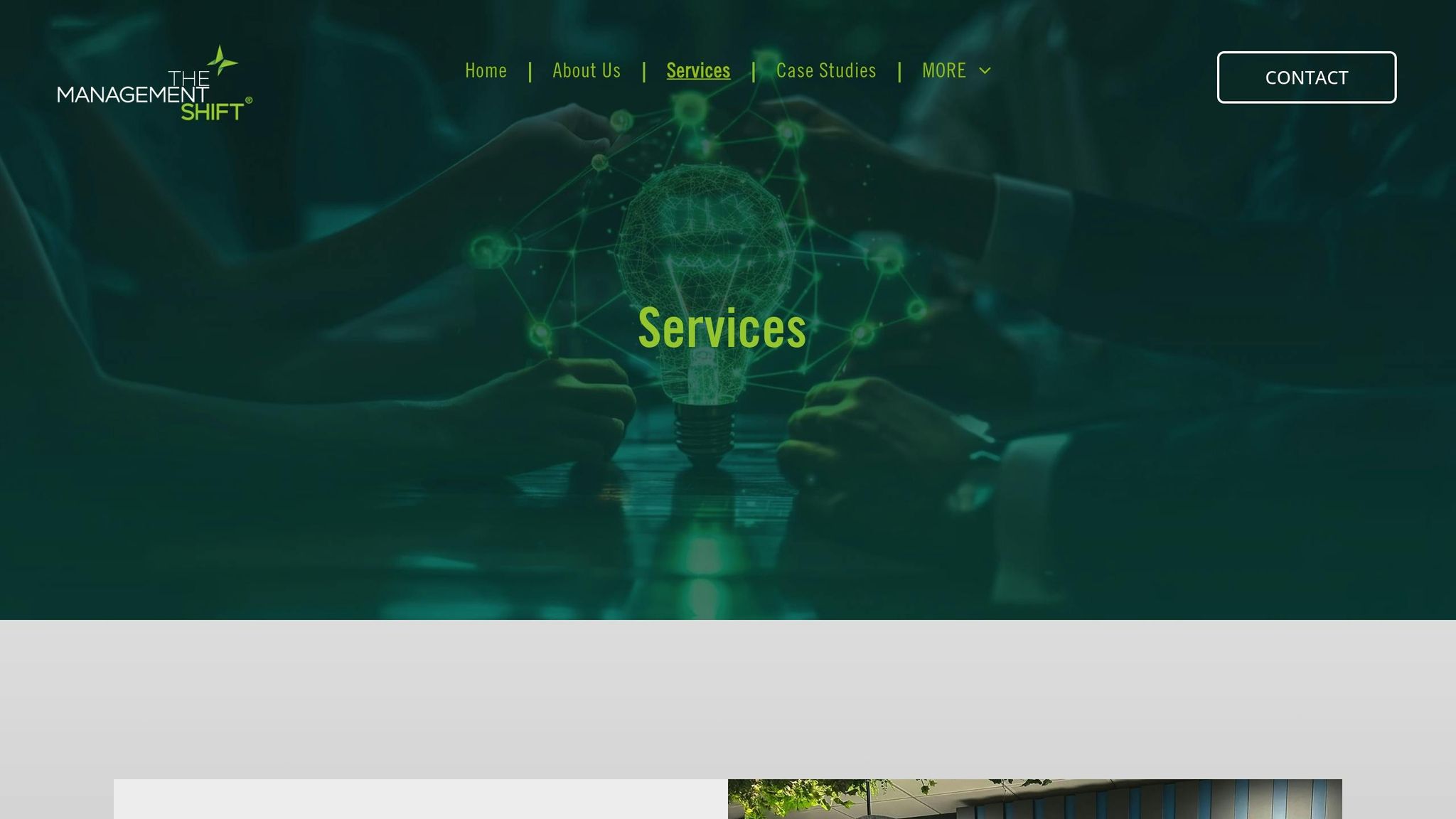How to Use Data-Driven Culture Diligence in M&A

In the complex world of mergers and acquisitions (M&A), traditional due diligence tends to focus on financials, legalities, and operations. However, one often-overlooked factor - organizational culture - can make or break the outcome of a deal. A staggering 70-90% of M&A deals fail, with culture-related issues being a leading cause. Despite this, cultural due diligence remains neglected in many transactions.
This article explores how data-driven culture diligence is revolutionizing the M&A landscape. Based on insights shared by a behavioral scientist and management expert, this transformative approach not only mitigates risks but also enhances deal outcomes. If you're an entrepreneur, founder, or executive eyeing growth through M&A, understanding this process can give you a critical edge.
The Importance of Culture in M&A
For mid-market companies managing $500K to $10M in annual revenue, scaling through mergers or acquisitions can be a pivotal move. Yet, culture-related challenges - such as mismatched leadership styles, low employee engagement, or poor talent retention - can derail the deal's success.
Research cited in the discussion highlights alarming trends:
- 30-50% employee attrition post-merger due to cultural mismatches.
- Engagement drop-offs ranging from 30% to 77%, which directly affect productivity.
- The ripple effects of these issues often lead to financial underperformance, despite initial optimism about the merger or acquisition.
The solution? A structured, data-driven approach to assessing and aligning cultures before, during, and after the deal. Enter the Organizational Health Scan - a tool designed to quantify and address cultural factors in real-time.
What Is Data-Driven Culture Due Diligence?
The Management Shift Framework

At the heart of this transformative process is a five-level cultural model called The Management Shift, developed through decades of interdisciplinary research. This framework evaluates organizational culture across five distinct levels:
-
Level 1: Lifeless Mindset
Characterized by apathetic, toxic workplaces. Employees feel disengaged, unmotivated, and unproductive. -
Level 2: Reluctant Mindset
Stagnating cultures where employees do only the bare minimum to get by. -
Level 3: Controlled Mindset
Orderly but rigid environments reliant on micromanagement and command-and-control structures. Innovation and collaboration are stifled here. -
Level 4: Enthusiastic Mindset
Collaborative, transparent, and purpose-driven cultures. These environments foster innovation, engagement, and high performance. This is the key transformative goal for organizations. -
Level 5: Limitless Mindset
Exemplified by highly innovative teams working toward visionary, humanity-focused goals.
The objective during cultural due diligence is to identify where the organizations involved in an M&A deal fall within this spectrum. Most importantly, the focus is on transitioning cultures from Level 3 to Level 4 for exponential improvements in trust, engagement, and performance.
How Organizational Health Scans Work
The Organizational Health Scan is a data-driven tool that provides a detailed diagnostic report on an organization's cultural health. It assesses six key areas critical to performance and value creation:
- Culture - The mission, values, and behavioral norms that guide employees.
- Relationships - The quality of collaboration and communication among teams.
- Individuals - Employee mindset, motivation, and alignment with organizational goals.
- Strategy - How effectively strategies are developed and executed.
- Systems - Operational processes and workflows.
- Resources - Tools, technology, and infrastructure supporting employees.
The scan is fast and efficient, requiring just 20 minutes for employees to participate anonymously. It pinpoints areas of strength and identifies blockages hindering performance. This data forms the foundation for creating a one-year actionable roadmap, tailored to the specific needs of the organization.
Applying Culture Due Diligence Across the M&A Lifecycle
1. Pre-Merger: Cultural Readiness Assessment
Before a merger or acquisition is finalized, the Organizational Health Scan evaluates both companies’ cultural strengths and weaknesses. This analysis anticipates potential issues such as leadership clashes or misaligned values, enabling decision-makers to address these risks proactively.
For example, in one U.S.-based consultancy aiming for a growth-to-exit strategy, the scan identified key improvements that doubled the company’s size within 18 months and increased profit by 500%. Addressing cultural factors early can also drive higher valuations during the negotiation process.
2. During M&A: Cultural Alignment Planning
Once the deal is underway, the scan informs strategies to align leadership styles, integrate teams, and sustain employee engagement. Skipping this step often results in costly talent losses and operational inefficiencies. A culture-alignment plan mitigates these risks, ensuring smoother integration.
3. Post-Merger: Integration and Monitoring
After the merger, the scan serves as a monitoring tool to assess ongoing cultural challenges. It measures progress, identifies areas requiring further intervention, and ensures that both organizations are moving toward a unified, high-performing culture.
Real-World Success Stories
The application of data-driven culture diligence has already delivered impressive results across industries:
-
Case 1: FTSE 100 Company
After implementing recommendations from a culture scan, this organization saw a 52.2% revenue increase and a 53% profit jump within three years. -
Case 2: Mid-Sized Consultancy
By using the scan to prepare for exit, this firm achieved a 500% profit increase and retained critical talent, enhancing its market appeal to potential buyers.
These examples demonstrate how cultural due diligence can drive financial performance, improve employee satisfaction, and ensure successful M&A integrations.
Why It Matters to M&A Teams
For M&A teams, traditional due diligence metrics - financials, operations, and legal compliance - only tell half the story. Culture is the intangible asset that determines whether the deal delivers long-term value. Neglecting it can lead to a chain reaction of failures, including talent attrition, disengagement, and missed synergies.
The Organizational Health Scan provides a much-needed solution by quantifying culture and offering actionable insights. It bridges the gap between strategy and execution, ensuring that people remain at the center of the M&A process.
Key Takeaways
- Culture is a critical driver of M&A success. Neglecting it can result in high employee turnover, reduced engagement, and poor financial outcomes.
- The Management Shift framework identifies five levels of organizational culture. Transitioning from Level 3 (Controlled) to Level 4 (Enthusiastic) is key to high performance.
- Organizational Health Scans offer a data-driven approach to diagnosing culture across six dimensions, including relationships, systems, and strategy.
- Cultural due diligence should be integrated into every phase of M&A, from pre-merger readiness to post-merger integration.
- Real-world results highlight the potential of culture-focused strategies, with revenue and profit increases of over 50% in some cases.
- Engaged employees drive financial success. Research shows a direct correlation between engagement and profitability, with a 1% engagement boost leading to a 0.5% profit increase.
Final Thoughts
In today’s fast-paced M&A environment, data-driven culture diligence isn’t just a nice-to-have - it’s a necessity. By leveraging tools like the Organizational Health Scan, mid-market businesses can unlock value, mitigate risks, and achieve smoother integrations. As the M&A landscape becomes more competitive, companies that prioritize cultural alignment will be better positioned for long-term success.
By bringing purpose, people, and performance into focus, data-driven culture diligence transforms M&A from a logistical challenge into a strategic opportunity. The question isn’t whether to prioritize culture - it’s how soon you can start.
Source: "Data-Driven Culture Diligence: The New Edge in M&A" - MergerWare, YouTube, Nov 4, 2025 - https://www.youtube.com/watch?v=yw-X8FDQpIc




